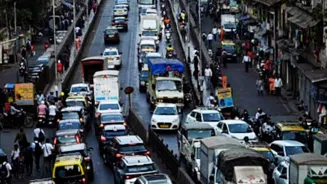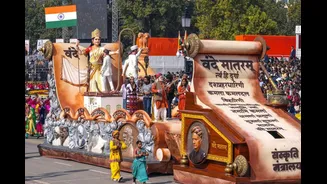The ministry of road transport and highways (MoRTH) has proposed some changes in the All India Tourist Vehicles (Permit) Rules, 2023, blocking tourist vehicles from remaining outside their home state for
more than 45 days, with monitoring through vehicle tracking systems. The same proposal also offers extending the validity of tourist vehicle permits from 12 to 15 years.
The move, according to a ministry official, is aimed at curbing misuse of permits, ensuring toll compliance, and enhancing passenger safety.
The draft amendment rules, published on Monday, said that, as and when implemented, the rules will be called the All India Tourist Vehicles (Permit) Amendment Rules, 2025. The proposal imposes stricter compliance for toll payments while also making tracking, monitoring, and reporting for journeys, routes and passengers mandatory.
“The tourist vehicle shall either commence its journey, or end its journey, circular or otherwise, in the home State, subject to the condition that the vehicle shall not remain outside the home State for a period of more than forty-five days to be monitored by the State Government through the Command and Control Centres…,” the proposal reads.
The “home state”, the proposal explains, means the state that has granted the All India Tourist Permit to the vehicles. The permit is issued by the state where the vehicle is registered.
The proposal also bars the tourist vehicle from operating as a stage carriage and stops them from picking up or setting down passengers not included in the list of tourists prepared.
The draft rules said that all these vehicles have to be fitted with a vehicle location tracking device and an emergency button. Also, operators must ensure they have no pending challans beyond 30 days, except for offences under prosecution by a court.
The draft adds a new definition of “unpaid user fee” for cases where a vehicle passes through an electronic toll without paying the applicable fee due to a lack of a valid or functional FASTag. The proposal also makes it mandatory for vehicles to clear such dues before getting the new tourist permit or renewing the old one, tightening compliance on toll payments.
“A tourist vehicle operator plying a tourist vehicle under the All India Tourist Permit shall upload the particulars of the point of origin, the destination and the states lying on the proposed route of such tourist vehicle, on the Vahan portal, before the commencement of each trip. The destination and the route may be modified at any stage, but not less than twenty-four hours prior from departure,” it added.
Also, the ministry has proposed that applications for the All India Tourist Permit must now be submitted specifically to the transport authority of the state where the tourist vehicle is registered.
This change ensures that permit jurisdiction and administrative responsibility lie strictly with the authority of the vehicle’s home state, strengthening accountability and preventing potential misuse of cross-state permit applications.
The proposal also makes it mandatory for the applicant’s address, along with Aadhaar or Corporate Identification Number or GSTIN, apart from vehicle fitness, insurance, and tax validity, and to reflect both seating and sleeper capacity.
Among the reasons cited by a ministry official for this reform is that states, including Nagaland, offer significantly lower road taxes and registration fees, and hence most of the tourist buses are registered in these states.
“The amendments aim to streamline the registration of tourist vehicles to check the loss that the state government has to bear as vehicles operate in that state but were not registered there. This will also help in making the states more accountable in case of tourist safety,” the official added.
Official data seen by News18 shows that Nagaland, a small state, has issued over 1.36 lakh national tourist permits this year—far higher than Kerala (14,573), Himachal Pradesh (36,704), Telangana (44,044), Madhya Pradesh (50,501), Punjab (79,614), or Karnataka (95,549).
Only four states have issued more permits than Nagaland—Haryana (2.93 lakh), Rajasthan (2.59 lakh), Uttar Pradesh (2.20 lakh), and Maharashtra (1.65 lakh).
The reason for this high number is the low vehicle registration costs in Nagaland, making it an attractive option for operators seeking to minimise expenses. Like Nagaland, Arunachal Pradesh was also a preferred place for commercial vehicle registrations until 2017.
In 2017, the Arunachal Pradesh government decided to cancel the registration and national permits of all tourist buses registered there but not operating in the state. The state is left with just 293 national permits issued this year.
The draft rules are open for suggestions for 30 days and will be taken into consideration after that. Objections or suggestions, if any, can be sent to the Additional Secretary (MVL), Ministry of Road Transport and Highways, Transport Bhawan, Parliament Street, New Delhi-110001.
The public or stakeholders can also email their suggestions and objections to comments-morth@gov.in.
“Any objection(s) or suggestion(s) which may be received from any person with respect to the said draft rules before the expiry of the period aforesaid will be considered by the Central Government,” the draft reads.
Once in force, the revised rules are expected to make tourist vehicle operations more transparent, safe, and properly regulated, while discouraging registration loopholes that currently benefit a handful of states.
















